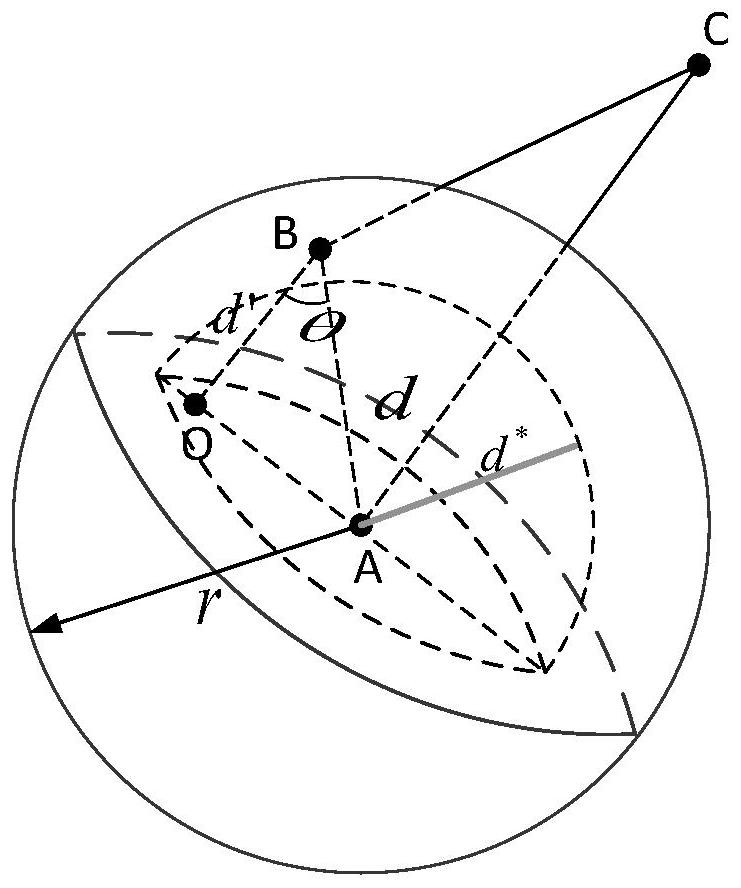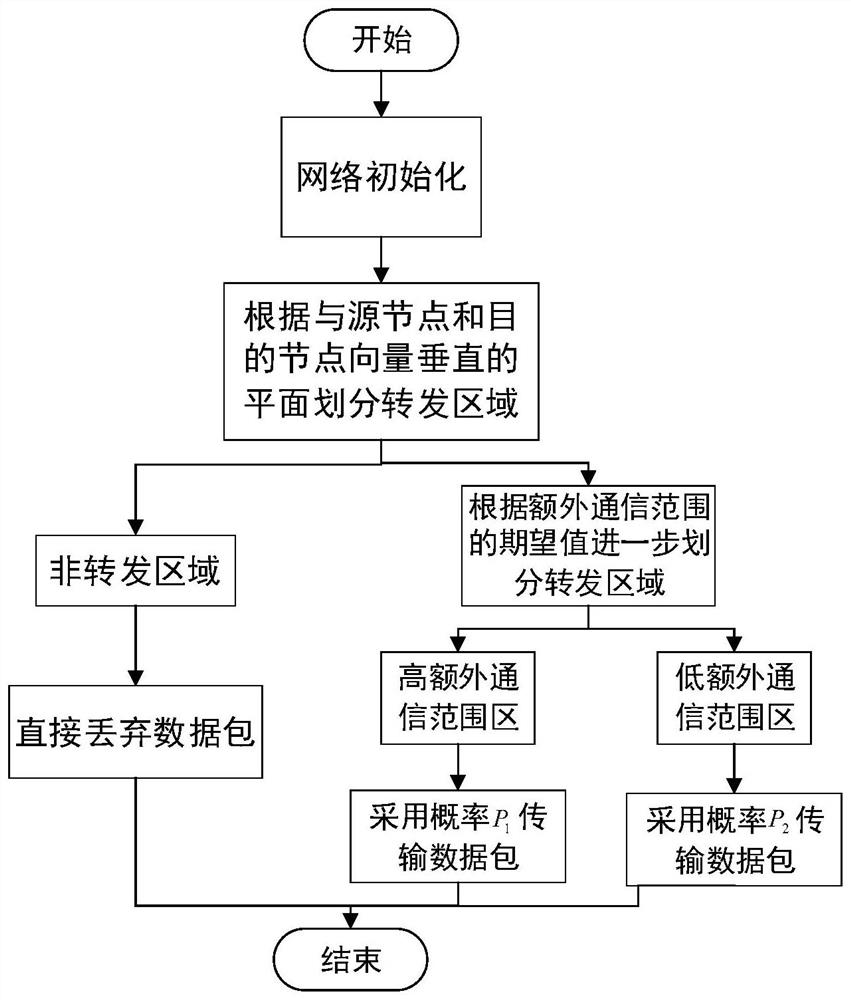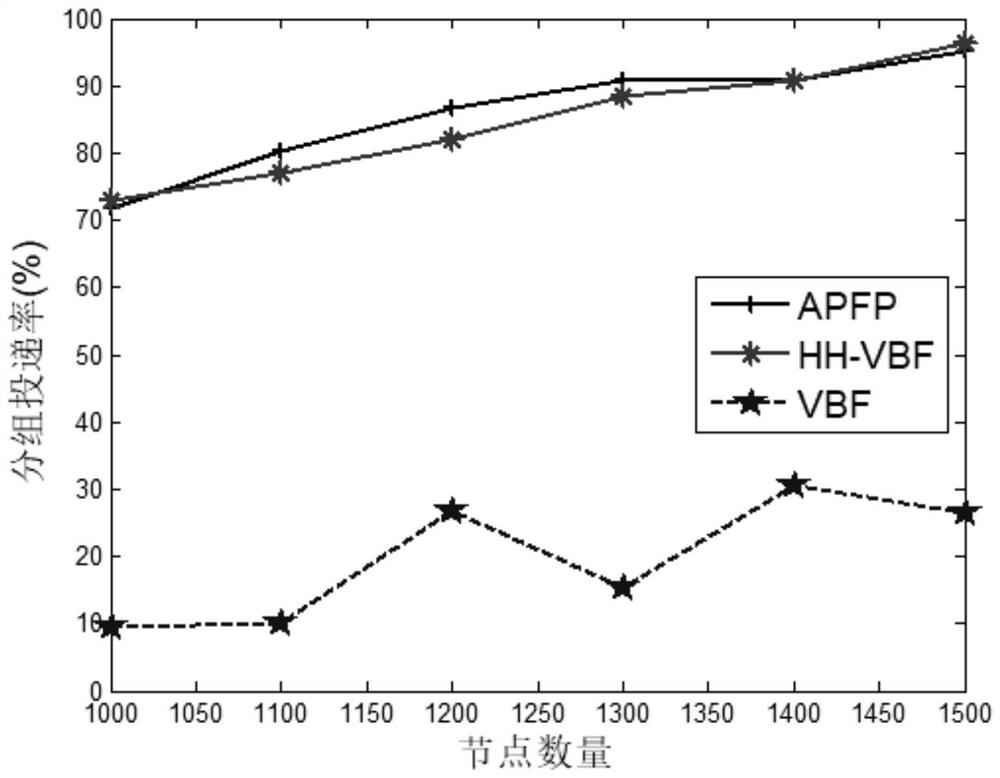Self-adaptive probability forwarding routing protocol of underwater acoustic sensor network
A technology of underwater acoustic sensor and routing protocol, applied in network topology, advanced technology, electrical components, etc., can solve the problem of not being able to find the next hop node, so as to save waiting time, reduce end-to-end delay, and ensure fairness sexual effect
- Summary
- Abstract
- Description
- Claims
- Application Information
AI Technical Summary
Problems solved by technology
Method used
Image
Examples
Embodiment Construction
[0050] The present invention will be further described below in conjunction with the accompanying drawings and embodiments.
[0051] The invention realizes an adaptive probabilistic forwarding underwater routing protocol named APFP. APFP considers the impact of the forwarding area on the communication range of nodes, and divides the network scene into two hemispheres. Nodes in the network area determine which partition they belong to based on their geographic location information, and different partitions use different forwarding probabilities.
[0052] Step 1: Each node in the network maintains two routing tables Q1 and Q2. Q1 records the data DATA to be transmitted by the node and the waiting time HT of the node; Q2 records the sent data packets and the data packet numbers.
[0053] Step 2: The source node A has data to send, but the source node does not have a route to the destination node. At this time, the route discovery process is started; the source node obtains its ...
PUM
 Login to View More
Login to View More Abstract
Description
Claims
Application Information
 Login to View More
Login to View More - R&D
- Intellectual Property
- Life Sciences
- Materials
- Tech Scout
- Unparalleled Data Quality
- Higher Quality Content
- 60% Fewer Hallucinations
Browse by: Latest US Patents, China's latest patents, Technical Efficacy Thesaurus, Application Domain, Technology Topic, Popular Technical Reports.
© 2025 PatSnap. All rights reserved.Legal|Privacy policy|Modern Slavery Act Transparency Statement|Sitemap|About US| Contact US: help@patsnap.com



